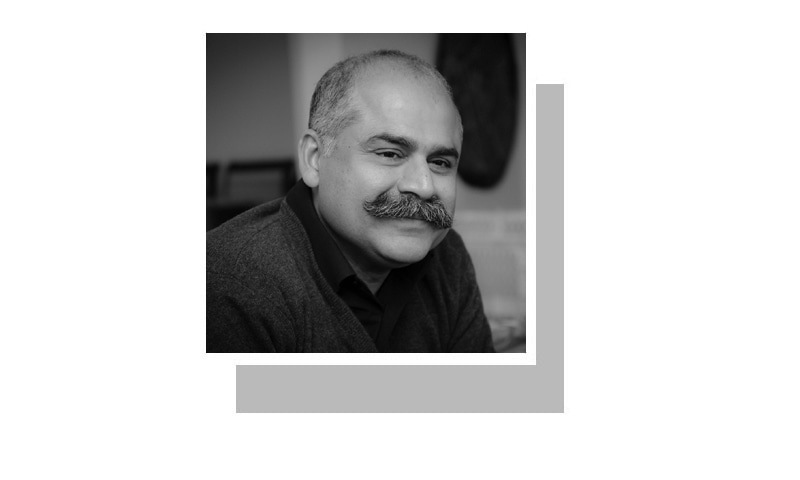WHEN was the last time you heard someone or the other saying that education is our only hope. In the last twenty four hours would be a safe bet, if not sooner. If we really believe that education is so central for Pakistan to raise its game then by definition we also believe that we have at the very least a handful of teachers who can help us wrestle the demons of the past and tackle what challenges lie in wait.
A prize for anyone who can name an academic who fits the bill of ‘public intellectual’ other than Dr Pervez Hoodbhoy, Dr Faisal Bari, and that bright spark almost out of public sight now, Dr Mohammad Waseem. Just where in the name of goodness is academia? All over the world it is academics who lead the discourse on every subject of import. They set up and lead think tanks. It is university professors who advise governments and help formulate policies. TV talk show hosts and news anchors invite academics as experts and analysts.
This abdication by the epistemic community has given rise to the most unfortunate situation where TV anchors have assumed the mantle of the public intellectual, and to add insult to injury, they invite fellow anchors as commentators and experts who trot out a moral equivalence for every outrage, see a conspiracy behind every development, and do not miss any opportunity to claim ‘I told you so’ in column this and that or on channel such and such.
TV anchors have assumed the mantle of public intellectuals.
It has been more than a decade and a half since the Higher Education Commission launched its faculty development initiatives including scholarships for PhD programmes in the leading universities of the world. Such efforts by the HEC for quality enhancement of centres of higher learning in the country can only be commended. However, by now we should have had at least a couple of cohorts of these PhDs making waves not just in the country but internationally as well.
Are we to understand that despite the mushrooming of public, semi-public and private universities in the country, we do not have, let’s say, 20 academics who can better inform the public discourse on tolerance, plurality of ideologies and beliefs, political economy, public office and conflict of interest, science, technological development, literature and art? Is it too much to ask of a 200 million-plus resource pool? It comes to one for every 10m Pakistanis.
So which Pakistani academic journals rank among the region’s best? Who has of late made waves in research publications internationally? Alright, we will make the rules of the game less stringent. These academics, researchers, scientists, public intellectuals need not be living in Pakistan. So how many times have you seen Dr Nergis Mavalvala, a Pakistani-American astrophysicist known for her role in the observation of gravitational waves, being invited to weigh in on any matter, scientific or otherwise? She is the Curtis and Kathleen Marble Professor of astrophysics at the Massachusetts Institute of Technology where she is also the associate head of the Department of Physics. Or is it that unless it is nuclear physics and something to do with the ‘bomb’ we are not interested? Or better still, astrologists who predict by-election results on TV channels and which month will be bhari (inauspicious) for politicians?
How often is Professor Ayesha Jalal invited to public forums in Pakistan? She is a Pakistani-American historian who serves as the Mary Richardson Professor of History at Tufts University. She has taught at Harvard and is the author of books like The Sole Spokesman: Jinnah, the Muslim League, and the Demand for Pakistan; and The Struggle for Pakistan: A Muslim Homeland and Global Politics, just to name the first and the latest. Maybe the ratings and popularity constraints demand the staged shouting matches that are held between sarkari intellectuals who are frequently seen heaping invective on each other both on and off air.
The HEC is right in insisting on research and a publication-oriented path to excellence for faculty, but those provided scholarships abroad either do not complete their PhDs or do not return to teaching jobs in Pakistan. Those who conduct their research programmes in Pakistan are hard-pressed to find qualified peer reviewers and supervisors with the right mix of discipline and mentorship.
Plagiarism cases keep appearing with disturbing frequency. The HEC itself is not immune to such scandals. Still there must be academics out there who can hold their own at least against the current lot of self-styled public intellectuals we are made to suffer day in and day out. We need an entire crop of accomplished academics whose understanding and knowledge of their subjects of specialisation is acknowledged and validated by their peers at home and abroad. Sold-out speaking circuit venues will be a sure sign of a healthy and informed discourse going on.
The writer is a poet and analyst.
Shahzadsharjeel1@gmail.com
Published in Dawn, November 25th, 2018












































